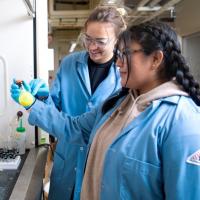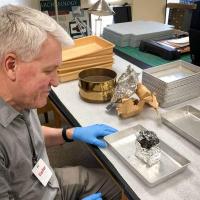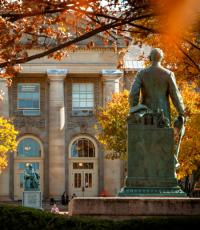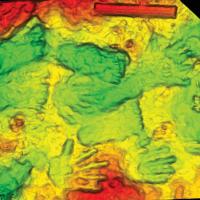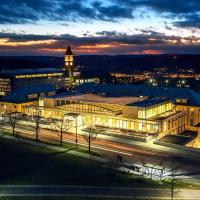Sophia Taborski is a PhD candidate in classical archaeology. They received their B. Phil. from the University of Pittsburgh in Classics and History and has taught English, Latin, and history in primary and secondary education. In their dissertation, titled “Inscribing Violence: Curse Tablets in the Roman Empire,” they examine the texts, contexts, orthography, and materiality of curse tablets to explore violence, embodiment, power dynamics, and intersectional identities and experiences such as disability, enslavement, race, gender, and sexuality. They have taken RTI (Reflectance Transformation Imaging) image sets of curse tablets in the Medici Library in Florence, the Diocletian Baths Museum in Rome, the Roman Bath Museum in Bath, and in the Stoa of Attalos in Athens and the National Archaeological Museum of Corinth as an Associate Member of the American School for Classical Studies. They have excavated in Argilos, Greece, and at St. James AME Zion Church, Ithaca. Other interests include religion, medicine, cognitive approaches, pedagogy, and domestic archaeology.
/sophia-taborski
